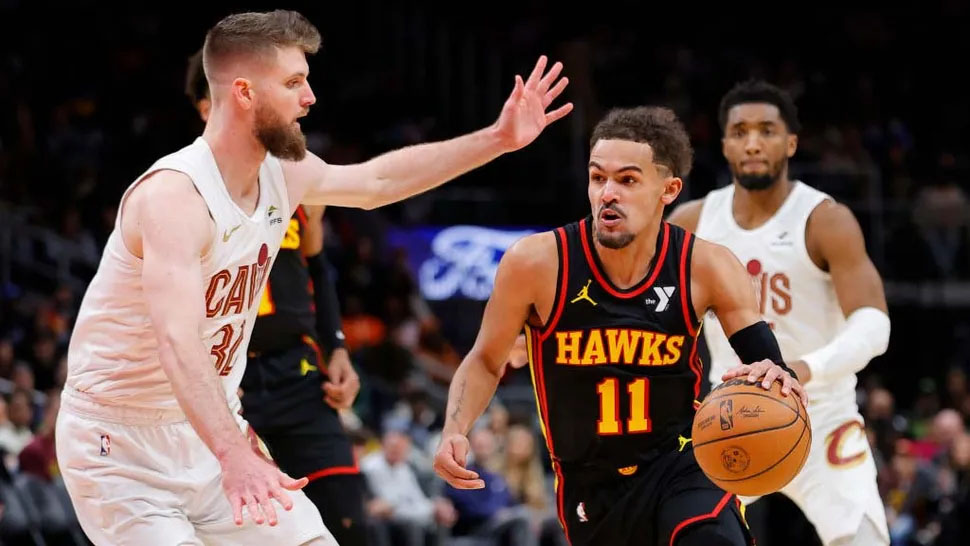Trae Young and the NBA’s Atlanta Hawks are among the those making a fast break from regional sports networks to over-the-air TV. (Image credit: Alex Slitz/Getty Images)
By
Source: www.nexttv.com, February 2024
Putting games behind a paywall won’t cultivate new fans
As the sun rises on 2024, a lot of light is shining on the future of sports and its relationship with broadcast television. For fans, things seem to be getting more complicated. Many games are only available through subscription, be it cable, satellite or a streamer. For the first time ever, most of the country had to pay to watch an NFL playoff game in January.

The immediate risk of going behind paywalls might not initially seem huge for some teams. Devoted fans are likely to follow their teams wherever they are — and the beat goes on … for now.
But where do the new fans come from? How does someone become a fan of something they can’t sample for free? What happens to franchises that are still in the process of establishing rabid fan bases?
And as of right now, streaming isn’t working for everyone — and that is going to impact the casual fan. I don’t think it’s any coincidence that the NFL playoff game I mentioned earlier — Kansas City Chiefs vs. Miami Dolphins, streaming on Peacock — was the lowest-rated wild-card playoff game dating back to 1991-92.
Built by Broadcast
It’s important to remember the NFL wasn’t always the juggernaut it is now. There was a time it was firmly behind baseball and the product was — for quite a while — considered to be inferior to college football. The legend of the NFL’s growth dates to December 28, 1958, when Johnny Unitas led the Baltimore Colts to the NFL championship in a nationally televised game that changed the future of the league. A fan base — and the NFL’s legacy — was truly born that day. Less than a decade later, the Super Bowl existed and the marriage of broadcast TV to professional football was forged.
Could that have happened behind a paywall?
There are reasons for optimism for broadcast sports. Our sister Gray Television station in Phoenix is now showing Phoenix Suns and Mercury games over the air across the state. Here in Atlanta, we’re proud to be showing 10 Hawks games across our stations in early 2024 — returning the NBA team to WPCH, where it aired over 30 years ago.
The reaction on social media when we announced this over the holidays was tremendous: “Awesome News!!” “That’s Outstanding.” “People should always be able to see some of their local teams’ games on TV, period.” “Awesome. About time.”
It’s not just viewers who are excited. Our sales team is talking to new advertisers who want to be a part of live sports.
Live and Local
We’ve also launched the Peachtree Sports Network with the goal of sharing live sports all across Georgia — from pro basketball and hockey to lacrosse and the Ultimate Frisbee Association, as well as high school sports. The idea is to give fans the games they want but also to grow more fans — people who can watch a game for free, then watch another game, then another …
I grew up in a household of casual sports fans just interested enough to know who won each game in some sports, but certainly not watching nightly. Would I have become the crazy sports fan I am if I hadn’t watched football, baseball, basketball and hockey for free on broadcast television as a kid? Televised games on Saturday and Sunday afternoons and evenings were what did it.
At their best, sports bring the people in this country together. We root for our teams, buy the gear, read about them, watch and listen to shows that talk about them. In many cases, we even pay the taxes that help fund stadiums and arenas. All of that became possible once fans didn’t actually have to attend the games to be part of the action. From listening to reports of the World Series over the telegraph to the evolution into radio and television, mass broadcast created mass fan bases.
Now, suddenly, we’re at a crossroads. Are sports going to remain something that everyone can be part of, or will they become private games played in publicly financed buildings available only to people willing to swipe their credit card?
The promise of rights fees may be alluring, but teams that go behind paywalls are putting a ceiling on how big their businesses can be. In the end, no matter what someone is selling, if people don’t know what the product is, they’re just not going to buy it.

